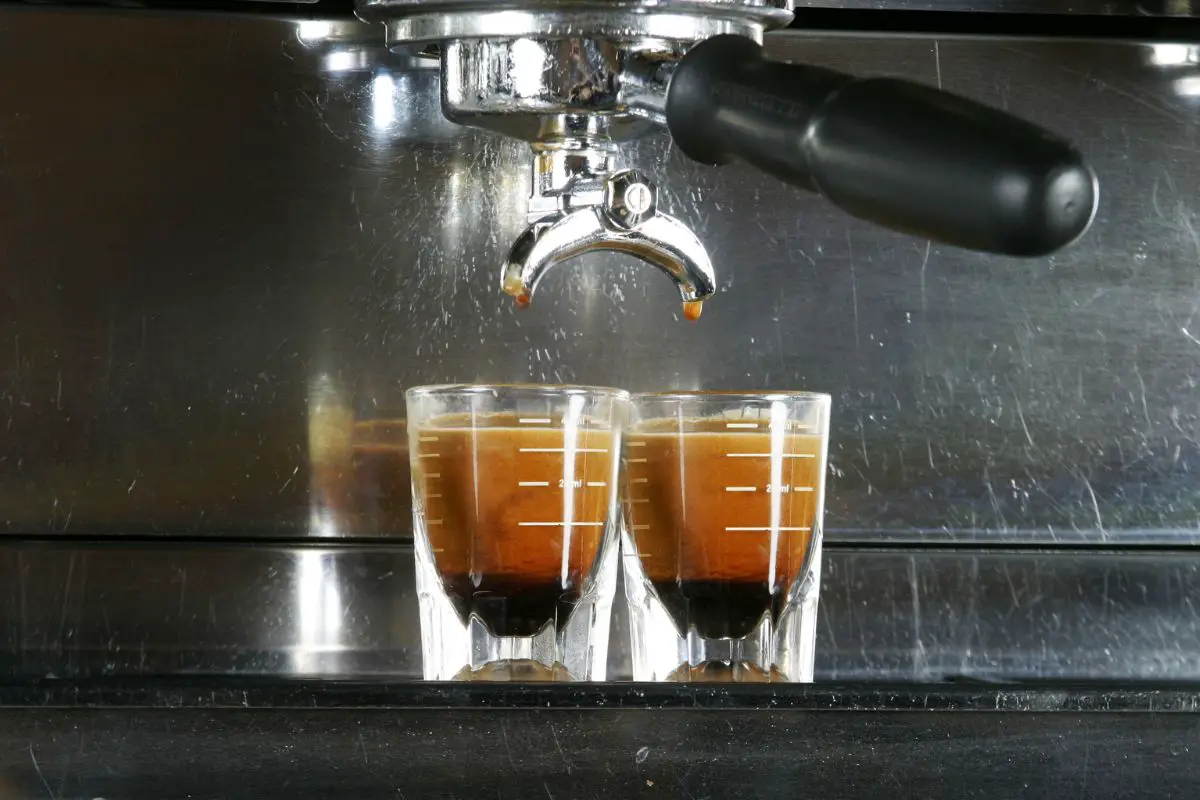Intermittent fasting has gained significant popularity in recent years due to its potential health benefits. Many individuals are adopting this dietary pattern to aid in weight loss, improve metabolic health, and increase longevity. However, the question of whether certain beverages, such as espresso, break a fast remains a topic of debate.

In order to understand the impact of espresso on fasting, it is crucial to delve into the science behind intermittent fasting. This dietary regimen involves alternating periods of eating and fasting, with various methods ranging from daily time-restricted feeding to alternate-day fasting. During the fasting period, the body undergoes several metabolic changes that promote fat burning and cellular repair.
To determine whether espresso breaks a fast, it is essential to identify what factors can disrupt the fasting state. Although espresso contains minimal calories, it does contain caffeine and other compounds that may have physiological effects. Therefore, evaluating the potential benefits and drawbacks of consuming espresso during fasting is important to ensure the desired outcomes of this dietary practice.
This article aims to explore the impact of espresso on fasting and provide evidence-based insights to help individuals make informed decisions regarding their fasting routine. By analyzing the scientific literature, we will uncover the potential benefits and risks associated with consuming espresso during fasting, ultimately guiding individuals towards a safe and effective fasting approach.
Key Takeaways
- Intermittent fasting is a popular dietary pattern for weight loss, metabolic health, and longevity.
- Adding milk, sugar, or additives to espresso can break a fast.
- Calories consumed from espresso can impact insulin response during fasting.
- Moderate consumption of espresso during fasting may not significantly disrupt fasting state, but consulting a healthcare professional is recommended.
Understanding Intermittent Fasting
Intermittent fasting is a dietary pattern that involves alternating periods of fasting and eating, with the main goal of promoting various health benefits. It has gained significant popularity in recent years due to its potential effects on weight loss, insulin sensitivity, and longevity.
This eating pattern typically involves restricting the eating window to a specific number of hours per day, such as 8 or 10 hours, and fasting for the remaining hours. During the fasting period, only water, black coffee, and tea are allowed, while no solid food or caloric beverages are consumed.
One common question that arises regarding intermittent fasting is whether consuming espresso or other forms of caffeinated beverages breaks the fast. Espresso, being a low-calorie beverage, is usually considered permissible during the fasting period. It contains negligible calories and does not significantly impact blood sugar or insulin levels. However, it is important to note that adding milk, sugar, or other additives to the espresso can break the fast as they contain calories and may affect blood sugar levels.
Intermittent fasting involves alternating periods of fasting and eating, with the aim of promoting various health benefits. While espresso is generally considered acceptable during the fasting period, it is crucial to avoid adding any caloric additives.
The next section will delve further into the science behind fasting and its potential effects on the body.
The Science Behind Fasting
This discussion will focus on the science behind fasting and how it affects the body.
Firstly, it will explore the various metabolic changes that occur during fasting, such as the shift from glucose to fat metabolism and the increase in ketone production.
Secondly, it will delve into the concept of autophagy, which refers to the cellular process of self-degradation and recycling, and how fasting can stimulate this process for cellular repair.
Overall, understanding the scientific mechanisms behind fasting can provide valuable insights into its potential health benefits.
How Fasting Affects the Body
When undergoing a fasting period, the body undergoes metabolic changes as it shifts from using glucose as its primary source of energy to relying on stored fat for fuel. This shift in fuel sources triggers a series of physiological responses in the body. Here are five notable effects of fasting on the body:
- Decreased insulin levels: Fasting reduces insulin production, which promotes fat breakdown and enhances fat utilization.
- Increased ketone production: Fasting stimulates the production of ketones, which are molecules produced from the breakdown of fat. Ketones serve as an alternative energy source for the body and can provide fuel for the brain.
- Enhanced autophagy: Fasting triggers autophagy, a process in which the body breaks down damaged cells and cellular components, promoting cellular repair and renewal.
- Improved insulin sensitivity: Fasting improves insulin sensitivity in the body, making it more efficient at utilizing glucose.
- Reduced inflammation: Fasting has been shown to reduce inflammation in the body, which may have various health benefits.
Understanding these metabolic changes during fasting provides valuable insight into the potential effects of fasting on the body’s overall function and well-being.
Metabolic Changes During Fasting
During a fasting period, the body undergoes metabolic changes as it shifts from using glucose as its primary source of energy to relying on stored fat for fuel, leading to decreased insulin levels, increased ketone production, enhanced autophagy, improved insulin sensitivity, and reduced inflammation, all of which contribute to the overall well-being of the body. These metabolic changes are crucial for the body to adapt to the absence of food intake and maintain its functions. To better understand the metabolic changes during fasting, let’s take a look at the following table:
| Metabolic Changes During Fasting | Effects on the Body |
|---|---|
| Decreased insulin levels | Promotes fat burning and weight loss |
| Increased ketone production | Provides alternative fuel for the brain |
| Enhanced autophagy | Promotes cellular repair and recycling |
| Improved insulin sensitivity | Helps regulate blood sugar levels |
| Reduced inflammation | Supports overall health and wellness |
These metabolic changes highlight the positive effects of fasting on the body, including weight loss, improved brain function, cellular repair, better blood sugar control, and decreased inflammation. The next section will delve into the importance of autophagy and cellular repair in the fasting process.
Autophagy and Cellular Repair
Autophagy and cellular repair serve as the body’s internal janitors, tidying up damaged components and ensuring optimal functioning. Autophagy is a natural cellular process that involves the degradation and recycling of unnecessary or dysfunctional cellular components, such as damaged proteins and organelles. This process plays a vital role in maintaining cellular homeostasis and preventing the accumulation of harmful substances. Additionally, autophagy has been linked to various health benefits, including improved longevity and protection against age-related diseases.
Fasting has been shown to stimulate autophagy, as the absence of nutrients triggers the body to rely on its internal resources for energy. By promoting autophagy, fasting allows the body to remove damaged components and initiate cellular repair. Understanding the impact of various substances on autophagy during fasting is crucial in determining what breaks a fast and its potential effects on cellular health.
What Breaks a Fast?

In the discussion on what breaks a fast, it is important to consider the effects of calories and insulin response, the impact of different foods and beverages, and the role of espresso in fasting.
Calories and insulin response play a crucial role in determining whether a fast is broken, as consuming calories can stimulate an insulin response and disrupt the fasting state.
Different foods and beverages can have varying effects on the body’s fasting state, with some potentially breaking a fast while others may not.
Espresso, in particular, is often debated as to whether it breaks a fast due to its minimal calorie content and potential impact on insulin levels.
Calories and Insulin Response
Calories consumed from espresso can have an impact on insulin response, potentially affecting the benefits of fasting. While espresso itself contains very few calories, the addition of milk, cream, or sweeteners can significantly increase the calorie content. This can lead to an increase in insulin levels, which can disrupt the fasting state.
The impact of espresso on insulin response can vary depending on the individual’s metabolism and sensitivity to insulin. Some individuals may experience a significant increase in insulin levels even with small amounts of calories, while others may have a minimal response.
It is important to be mindful of the calorie content of the espresso and any additions when fasting, as excessive calorie intake can break a fast and hinder the potential benefits. Opting for black espresso or consuming it in moderation without any added ingredients may be a safer choice for those seeking to maintain the fasting state.
Moving on to the next section about the impact of different foods and beverages on fasting…
Impact of Different Foods and Beverages
Different foods and beverages can have varying effects on the fasting state, influencing factors such as hormone regulation, energy levels, and overall metabolic response. The impact of these substances can be attributed to their macronutrient composition, micronutrient content, and potential to stimulate insulin secretion.
Carbohydrates, for example, have a significant effect on blood sugar levels and insulin release, while proteins and fats have a more minimal impact.
When it comes to beverages, the role of caffeine in fasting is often a topic of discussion. Espresso, a concentrated form of coffee, is known for its high caffeine content. While caffeine itself has been found to have minimal effects on insulin secretion, the potential presence of calories and other additives in espresso may influence the overall impact on fasting.
In the next section, we will delve into the specific role of espresso in the context of fasting.
The Role of Espresso in Fasting
Espresso consumption during fasting has been a subject of interest due to its potential impact on metabolic responses and hormonal regulation. To better understand the role of espresso in fasting, it is important to consider its nutritional composition. While espresso itself is low in calories and carbohydrates, it contains caffeine which can stimulate the release of certain hormones and increase metabolism. However, the effects of espresso on fasting vary depending on individual factors such as sensitivity to caffeine and the overall fasting regimen. Some studies suggest that moderate consumption of espresso during fasting may not significantly disrupt the fasting state. Nevertheless, it is recommended to consult with a healthcare professional before incorporating espresso into a fasting routine to ensure safety and optimize the desired outcomes. Moving forward, it is important to explore the potential benefits and drawbacks of espresso and fasting in greater detail.
Espresso and Fasting
Caffeine consumption during fasting has been shown to have a potential impact on metabolic processes, arousing curiosity about the effects of espresso on the fasting state. While there is limited research specifically examining the effects of espresso on fasting, understanding the potential implications is crucial for individuals seeking to optimize their fasting routines.
Here are four key points to consider:
- Insulin response: Some studies suggest that caffeine can affect insulin sensitivity and glucose metabolism, potentially influencing the fasting state. However, more research is needed to fully understand the extent of these effects.
- Appetite suppression: Caffeine has been shown to suppress appetite, which may be beneficial for individuals practicing fasting. By reducing hunger pangs and cravings, espresso consumption during fasting may help individuals adhere to their fasting regimen.
- Energy boost: The stimulatory effects of caffeine can provide an energy boost during fasting periods, helping individuals stay focused and productive without consuming calories.
- Individual variability: It is important to note that the effects of espresso during fasting can vary among individuals. Factors such as metabolism, caffeine sensitivity, and overall health should be taken into consideration.
Considering these points, it is clear that espresso consumption during fasting can have both positive and potentially negative effects. In the subsequent section, we will explore the potential benefits of espresso during fasting, providing a comprehensive understanding of its role in optimizing the fasting state.
Benefits of Espresso During Fasting

When considering the potential benefits of incorporating espresso into a fasting routine, it is essential to explore the effects of caffeine on metabolic processes and appetite regulation. Research suggests that espresso, when consumed in moderation, can offer certain advantages during fasting periods.
Firstly, caffeine has been shown to increase thermogenesis, which is the process by which the body produces heat and burns calories. This can potentially enhance metabolic rate and aid in weight management.
Additionally, caffeine has been found to suppress appetite and reduce cravings, which can be particularly beneficial during fasting when hunger pangs may be more pronounced.
Moreover, espresso contains antioxidants, such as chlorogenic acid, which have been associated with various health benefits, including improved insulin sensitivity and reduced inflammation.
However, it is important to note that individual responses to caffeine can vary, and excessive consumption may lead to adverse effects such as insomnia, jitteriness, and increased heart rate. Therefore, it is crucial to exercise moderation and consider personal tolerance levels when incorporating espresso into a fasting routine.
As always, consulting with a healthcare professional is recommended to ensure safety and individual suitability.
Frequently Asked Questions
How does intermittent fasting affect weight loss?
Intermittent fasting is a dietary approach that involves alternating periods of fasting and eating. It has been shown to aid in weight loss by promoting calorie restriction, improving insulin sensitivity, and increasing fat burning.
Can I consume any beverages during a fasting period?
During a fasting period, it is generally recommended to consume only water or non-caloric beverages. Consuming espresso may break a fast due to its calorie content, potential impact on insulin levels, and stimulation of digestive processes.
Is it necessary to completely avoid all food and drinks during a fasting period?
It is not necessary to completely avoid all food and drinks during a fasting period. However, the intake of certain beverages, such as espresso, may break a fast due to its calorie content and potential impact on insulin levels.
Does adding cream or sugar to my espresso break my fast?
Adding cream or sugar to espresso breaks a fast because it introduces calories and disrupts the metabolic state of fasting. This can hinder the desired health benefits and negate the physiological effects of fasting.
Can I still experience the cognitive benefits of espresso while fasting?
The cognitive benefits of espresso can still be experienced while fasting, as long as the espresso is consumed without any additives such as cream or sugar. However, consuming espresso on an empty stomach may cause gastrointestinal discomfort in some individuals.
Conclusion
In conclusion, the consumption of espresso during fasting is a topic that has raised much debate. While some argue that the presence of calories in espresso can break a fast, others suggest that the minimal calorie content and potential benefits of espresso make it a suitable option for those practicing intermittent fasting.
The decision ultimately lies with the individual and their fasting goals. However, it is important to consider the potential impact of espresso on insulin levels and overall fasting efficacy. With that being said, ‘a drop in the ocean’ of espresso may not necessarily hinder the benefits of fasting.
Related article: